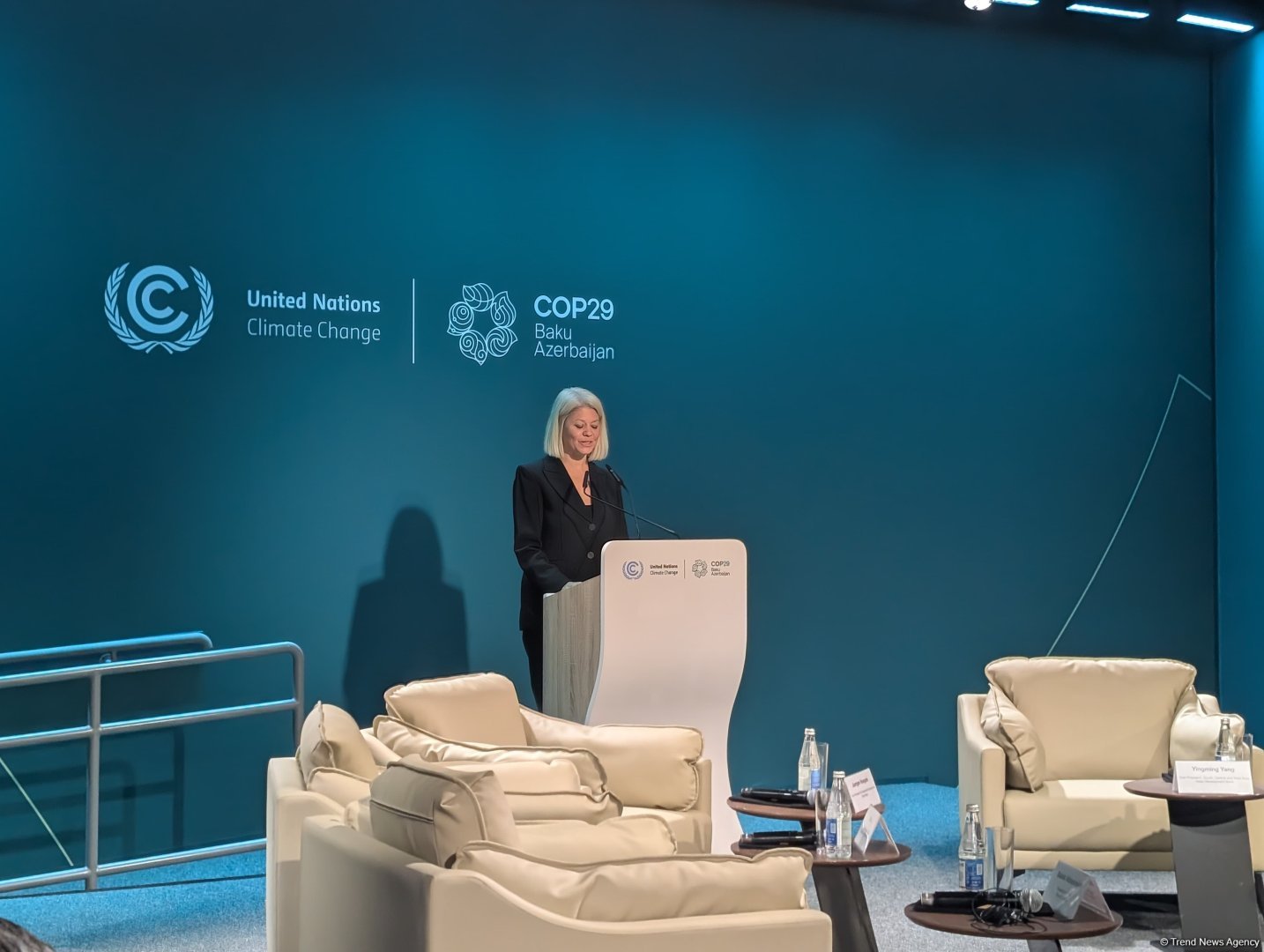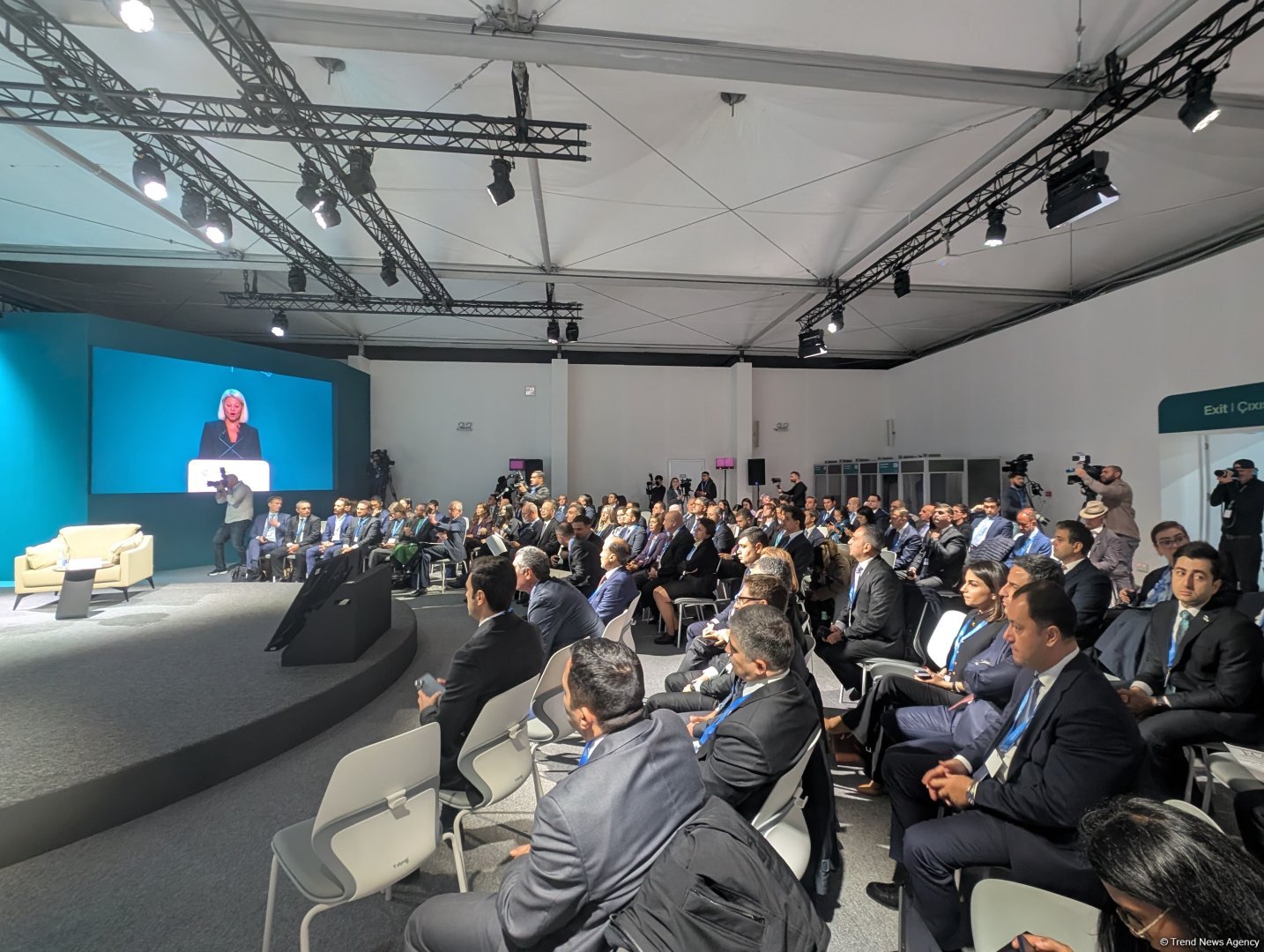BAKU, Azerbaijan, November 14. A panel discussion on "Global Financial System: Scaling Up Financing for Climate Action" is being held within the COP29 Finance, Investment, and Trade Day, Trend reports.
The President of the Azerbaijan Banks Association (ABA) Zakir Nuriyev said that Azerbaijani banks have implemented several important initiatives within the framework of the “Sustainable Finance Roadmap 2023-2026".
“One of the initiatives is the introduction of sustainable and green finance principles. Banks have already started to integrate sustainable and green finance principles into their strategies, governance frameworks, risk management practices, and disclosure standards.
These measures are in line with the sustainable finance principles for financial institutions and climate risk management recommendations published by the Central Bank of Azerbaijan. Another initiative is related to sustainable products and services. In addition, banks are actively developing sustainable products and services, including digital banking solutions, environmentally friendly products, and social responsibility initiatives,” Nuriyev explained.
The Vice President of the EIB, Ambroise Fayolle, said the European Investment Bank (EIB), with the support of other European development finance agencies, the European Bank for Reconstruction and Development (EBRD), and the European Commission, will launch the Global Green Bond Initiative.
“The EIB, with the support of other European development finance agencies, the EBRD, and the European Commission, will launch the Global Green Bond Initiative because green bonds are not often issued in developing countries. Many developing countries have not yet issued any green bonds, and we want to change that, as projects that could be financed through green bonds exist.
In addition, we have set up a fund that will have one billion euro of capital from public institutions and two billion senior bonds to be subscribed by private investors. This will allow the fund to issue green bonds, which we hope will help finance up to 20 billion euro for projects in countries where we have not yet seen significant development in this area,” he mentioned.
Asian Development Bank (ADB) Vice President for South, Central, and West Asia Yingming Yang said that ADB is stepping up its focused and specialized efforts to support developing countries in promoting and strengthening their climate-resilient and climate-responsive financial system.
“ADB is increasing its focused and specialized efforts to support developing countries in developing and strengthening their climate-resilient and climate-responsive financial systems. We are using traditional lending through financial intermediaries to support client banks in implementing and institutionalizing their climate finance systems to increase lending to climate projects. We are actively using policy-based lending to help countries establish a comprehensive framework for climate finance,” he added.
To note, the 29th session of the Conference of the Parties to the United Nations Framework Convention on Climate Change (COP29) started in Baku on November 11. The United Nations Framework Convention on Climate Change is an agreement signed at the Earth Summit in Rio de Janeiro in June 1992 to prevent dangerous human interference in the climate system.
A total of 198 countries are Parties to the Convention. Unless the parties decide otherwise, the COP is held annually. The first COP event took place in March 1995 in Berlin, and its secretariat is located in Bonn.
The main expectation from COP29 is to agree on a fair and ambitious New Collective Quantitative Goal (NCQG) on climate finance. The COP29 chairmanship has launched 14 initiatives that include linkages between climate action and the Sustainable Development Goals, including green energy corridors, green energy storage, harmony for climate resilience, clean hydrogen, methane reduction in organic waste, action on green digital technologies, and other topics.
Stay up-to-date with more news on Trend News Agency's WhatsApp channel










